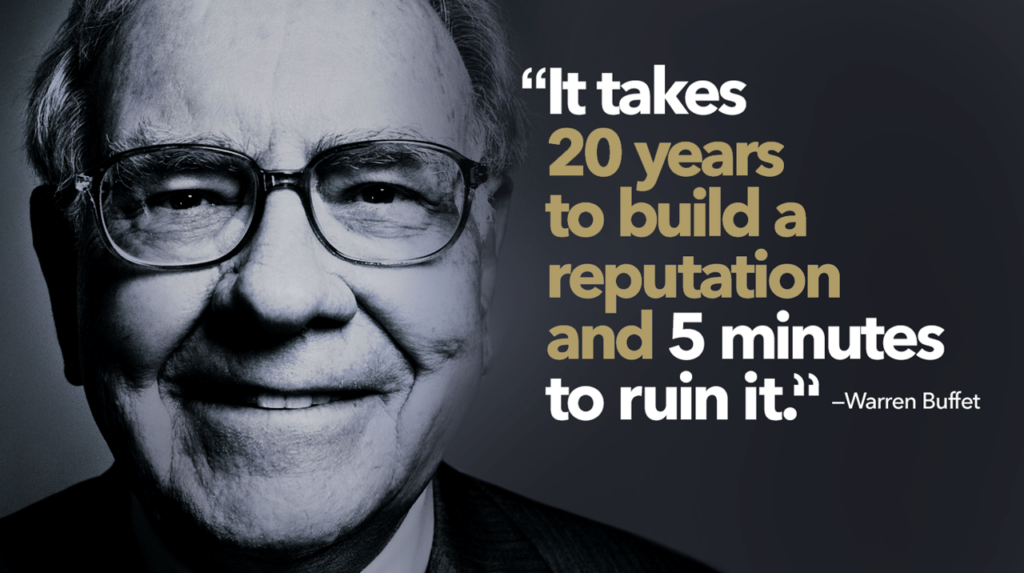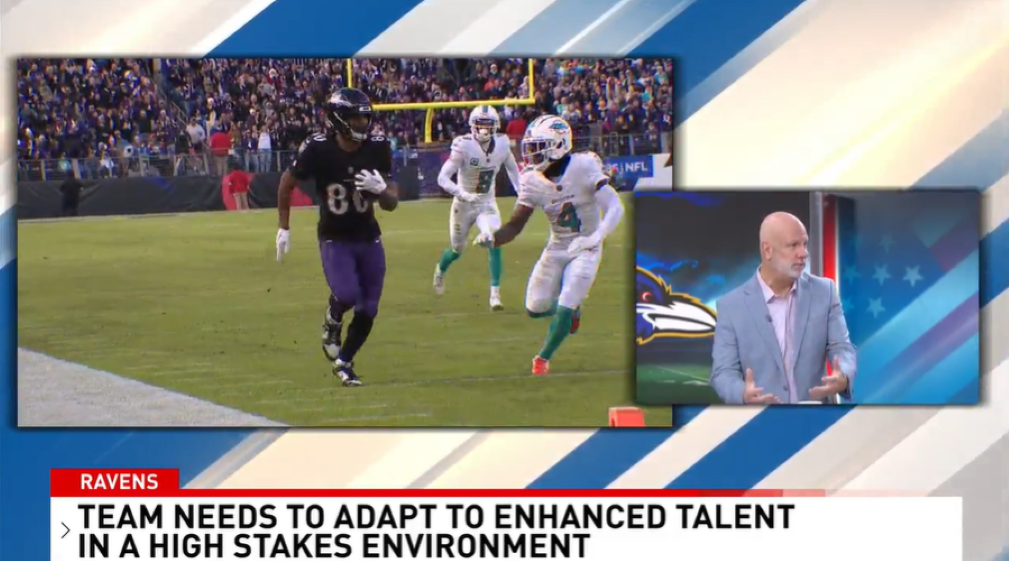Who Are Your Stakeholders?

At Fallston Group, we understand that the term “stakeholder” frequently arises in business discussions, yet its significance often extends beyond mere terminology. Stakeholders encompass a diverse group of individuals and entities, including colleagues, employees, business associates, government officials, and community leaders who have a vested interest in your success. These individuals are invested in your personal and professional achievements. For instance, a community pastor with employees in their congregation or local politicians aiming for job creation through your business expansion can be considered stakeholders. Essentially, stakeholders are those who, directly or indirectly, influence or are influenced by your organization’s actions. In Prosperous Times: Stakeholders play a crucial role in amplifying your organization’s messaging during periods of growth, recognition, or project completion. Their support and positive influence are instrumental in enhancing your reputation, image, and trust within the community and industry. Research by the World Economic Forum indicates that companies with strong stakeholder relationships tend to achieve 16% higher profit margins compared to those with weaker connections. During Challenging Times: Engaging with stakeholders during difficult periods is not merely a strategic move but a vital source of reassurance and support. Given their vested interest in your organization’s well-being, stakeholders can help you understand the broader impact of a crisis. They can leverage their voices to share key messages and demonstrate solidarity. Additionally, stakeholders often provide unique perspectives that are invaluable in navigating challenging situations. A study by the Harvard Business Review found that 85% of companies that effectively engaged stakeholders during a crisis reported a faster recovery and less reputational damage. The Importance of Effective Communication: Effective communication is more than just a tool; it is essential for building strong, trust-based relationships with stakeholders. By involving the right allies, stakeholders can significantly contribute to protecting your organization’s reputation and ensuring its resilience. Their support can enable your organization to emerge stronger from any challenges it faces. Research from the Edelman Trust Barometer highlights that organizations perceived as engaging transparently and effectively with stakeholders are 2.5 times more likely to be trusted by the public. At Fallston Group, we believe that understanding and leveraging the power of stakeholders is crucial for any organization aiming to achieve sustained success and resilience. By fostering strong relationships based on mutual trust and effective communication, stakeholders can become invaluable allies in both prosperous and challenging times.
Fallston Group’s Crisis Management Tactics: Lessons from “The Morning Show”

Apple TV’s “The Morning Show” serves as a riveting case study in crisis management. This show provides a real-life look at what organizations turn to Fallston Group for, where protecting and enhancing reputations is at the forefront of every leader’s day. Let’s explore the critical lessons we can draw from this series and how they align with our expertise at Fallston Group. 1. The Imperative of Transparency The firing of the show’s anchor due to serious allegations sets off a chain reaction, which was poorly managed by the network, whose attempt was to obscure details. This lack of transparency only escalates the crisis. Fallston Group’s Approach: Our team emphasizes that transparency is not just about honesty but building trust. We counsel our clients to be forthright and clear in their communications, addressing issues head-on to prevent misinformation and speculation. Our tailored strategies ensure that clients maintain credibility even under intense scrutiny, and most of our most important principles is: “Never do anything to disrupt your integrity.” 2. Swift and Decisive Action The show’s depiction of delayed responses highlights the consequences of hesitation. In crisis management, time is of the essence. Fallston Group’s Approach: We strongly advocate for immediate and decisive action, with a key point of completing proactive training and having readily available documents so an organization knows how to respond without delay. Our crisis response teams are trained to quickly assess situations and implement effective strategies. Whether it’s a public statement, internal action, media relations, board alignment, etc., velocity and precision are our hallmarks, focusing on what we can control to ultimately tell the story. 3. Effective Internal Communication Chaos reigns when internal communication fails. The confusion and fear among staff are palpable and counterproductive. Fallston Group’s Approach: Our experienced team understands that effective crisis management starts from within. We develop comprehensive internal communication plans to keep employees informed, engaged, and aligned. This mitigates internal panic and strengthens the organizational front against external pressures. 4. Empathy and Support for Staff The emotional impact on the show’s characters underlines the importance of addressing the human element in crisis situations. Fallston Group’s Approach: We always look through the lens that emphasizes compassionate crisis management. Recognizing the emotional toll on employees, we provide resources and support systems to help them navigate challenging times. Our holistic approach ensures staff feel valued and supported, maintaining morale and productivity. Clients have often told us that they appreciate the fact that we immerse ourselves into the lives of the client and become an extension of their Leadership Team. This is crucial for us, as you don’t spin your way through crisis, you lead your way through the storm. 5. Controlling the Narrative “The Morning Show” demonstrates the power struggles inherent in narrative control. A fragmented message can exacerbate a crisis. Fallston Group’s Approach: “If you don’t tell your story, someone else will. And when someone else tells your story, it certainly won’t be the story you want told.” – Rob Weinhold, Fallston Group CEO. We take a proactive stance in controlling the narrative. Fallston Group’s team crafts cohesive and consistent messages that resonate with all stakeholder groups. By maintaining a unified voice, we help our clients steer the conversation, reducing the risk of misinterpretation and rumor proliferation. 6. Long-Term Trust Rebuilding The series shows that regaining trust is a marathon, not a sprint. The characters’ journey to rebuild trust mirrors real-world challenges. Fallston Group’s Approach: Rebuilding trust requires a strategic, long-term commitment. This is why we always tell our clients, you must be continuously making deposits in your reputational piggy bank, as we know that there may be a time we have to make a small withdraw. At Fallston Group LLC, we develop tailored strategies that focus on sustained efforts to regain and strengthen trust. Through continuous engagement and transparent communication, we help our clients restore their reputations over time, for the greater good of the organization and whom it serves. Conclusion Apple TV’s “The Morning Show” offers a dramatic yet realistic depiction of the intricacies involved in managing a crisis. The lessons from the show reinforce the importance of transparency, swift action, effective communication, empathy, narrative control, and long-term trust rebuilding—principles that are deeply ingrained in the ethos of Fallston Group. We are dedicated to guiding our clients through the turbulence of crises with expertise and care. For specialized crisis management strategies tailored to your needs, contact us today.
Fallston Group Activates Southeastern Region Location

Fallston Group, a distinguished leader in crisis leadership, public relations, strategic communications, and reputation management, announces the inauguration of its presence in Tampa, Florida, now serving the Southeastern region of the United States. The strategic expansion amplifies Fallston Group’s commitment to assisting organizations (proactively and reactively) with crisis leadership services, equipping organizations who must navigate turbulent times with precision, clarity, and resilience. Fallston Group, which works with private, public, and nonprofit organizations, as well as individuals in need, has been building, strengthening, and defending reputations since the company was founded 15 years ago in Baltimore, Maryland. Fallston Group is a renowned authority in crisis leadership and strategic communication. The regional team brings more than two hundred years of combined professional experience to assist clients in effectively managing their decisions, narratives, and brands in the most challenging circumstances. “If you don’t tell your story, someone else will. And when someone else tells your story, it certainly won’t be the story you want told,” remarked Rob Weinhold, Chief Executive of Fallston Group. “You don’t spin your way through a crisis; you lead your way through. While counterintuitive, crises are growth opportunities not to be feared.” Weinhold adds, “We know how to turn short-term adversity into long-term advantage, saving clients time, money, customers, careers, and in the worst of scenarios, freedom, and lives. It is not a matter of ‘if’ but ‘when’ crisis strikes, as anyone with an internet connection and/or recording device can wreak havoc on your brand. The new southeastern regional presence, centered in Tampa, Florida, signifies Fallston Group’s unwavering commitment to delivering exceptional services tailored to client needs, particularly in crisis leadership, strategic communication, public relations, and media training. Whether guiding businesses through reputational crises or creating organizational muscle memory to enhance crisis preparedness, Fallston Group remains a trusted partner dedicated to safeguarding client reputations and valuation. The firm operates at the critical intersection of leadership, strategy, and communications. “We are thrilled to broaden our footprint,” continued Weinhold. Our team will work closely with leaders in the region, equipping them with the tools and strategies necessary to navigate any sensitive, adverse, or crisis-oriented issues.” Fallston Group’s expansion represents a significant milestone in the company’s 15-year trajectory, reflecting its ongoing commitment to excellence while supporting its domestic and international clients.
Fallston Group’s Core Principle – “Reputation leads to Trust and Trust leads to Valuation.”

Few names resonate with as much reputational equity as Warren Buffett. Often recognized for his famous quote “It takes 20 years to build a reputation, and 5 minutes to ruin it.” At the heart of Warren Buffett’s enduring success lies a profound dedication to his craft, one that extends far beyond mere financial prowess. As we say at Fallston Group – “Not all currency is financial.” It’s a dedication rooted in the cultivation and preservation of your reputation, one built on trust, transparency, and ethical principles. Central to Buffett’s reputation is transparency. Berkshire Hathaway’s annual shareholder letters, eagerly awaited by investors worldwide, are a masterclass in candid communication. Buffett doesn’t shy away from discussing failures or mistakes, viewing them as opportunities for learning and improvement. This transparency fosters trust and reinforces his reputation as a reliable steward of capital. Buffett’s philanthropy is as legendary as his investment prowess. His pledge to donate the majority of his wealth to charitable causes is a testament to his commitment to society. By leveraging his wealth for the greater good, Buffett further burnishes his reputation as a responsible global citizen, leaving a legacy that transcends financial success. Warren Buffett’s name will forever be etched in gold. Yet, beyond his staggering wealth and market acumen lies a deeper lesson – the importance of reputation. Buffett’s success isn’t just measured in dollars but in the trust and respect he commands. In an age where reputation can be fleeting, Buffett’s enduring legacy serves as a beacon of integrity and a timeless reminder of the enduring value of a sterling reputation.
Cap One – a Capitalist’s Drive for Growth

Reflecting on the recent announcement that Capital One plans to acquire Discover, it is impressive to see the strategic positioning and drive for Capital One to continue its growth patterns. Capital One has a good track record for growth, as it boasts that it has exceeded numerous growth targets since its creation in 1994. This type of track record doesn’t happen by accident. It takes a clear strategy and, most importantly, a dedicated focus on execution. An effective short-, mid-, and long-term strategy is rooted in having a clear understanding of and focus on your company’s unique advantages, which then translates to a winning proposition in the marketplace. Also, it is important to plan for execution to meet organizational goals. This requires a commitment to focus and relentless attention on many execution details daily to achieve success. Then, enterprising, growth-minded companies drive growth and set even higher goals to achieve success within their marketplaces. This is what brings Capital One to the plan to acquire Discover….an internal strategic drive to move on to the next step of change in performance for the company and its investors. By acquiring Discover, Capital One moves strategically into a new world where they can compete with Visa and Mastercard to provide a globally competitive payments network while also capturing numerous other synergies in the card business from the combined companies. I bet Capital One delivers on its aspirations since they have a demonstrated track record for solid execution – the most important predictor of success being past performance. More competition in the card payments field should also benefit retailers and consumers! Does your organization have an established strategic plan and leveraged pathway to success? If not, contact us to learn more about the various models we implement to help organizations activate their mission, vision, and values.
Embracing Failure: A Crucial Aspect of Crisis Leadership

In crisis leadership, one must not only navigate many nuanced challenges but also possess the resilience to learn and adapt from failures—a concept encapsulated in the term “failing forward.” It is a mindset integral to steering organizations through turbulent times. However, the only way to get there is within a psychologically safe environment where there is a commitment to brutal truths and root causes. Yes, you must be both courageous and vulnerable. Research indicates that viewing failure as a learning opportunity enhances an individual’s capacity to respond effectively to crises. Organizations should not only tolerate failure but actively encourage it. This approach creates a culture where team members are empowered to take calculated risks without the fear of severe repercussions. In other words, it’s okay to fail…but let’s not try to repeat the same failure. Failing forward is not about celebrating failure but embracing the valuable lessons that emerge from it. By dissecting failures, crisis leaders can identify causations, refine strategies, and fortify their organizations against future challenges. Failure is a platform for growth. Failing forward is an indispensable aspect of crisis leadership. At Fallston Group, we routinely talk about turning short-term adversity into long-term advantage. Basically, failure is one step in the stairway to success. Embrace it, feel it, learn from it, adapt as a result of it, then push forward with relentless momentum and excellence until you achieve. Don’t let it beat you! Link to news segment: https://foxbaltimore.com/morning/how-to-get-past-the-disappointment-and-emotion-of-loss-and-failure#
Risk Intelligence (RI): A Crucial Element in Crisis Leadership & Communications

As we say at Fallston Group – “Anybody with an internet connection or recording device can wreak havoc on your brand.” In this fast-paced intersection of technology and business, professionals across various domains face the challenge of managing risks and proactively shaping the trajectory of organizations. At Fallston Group LLC (Expert Reputation Management | Fallston Group), a global reputation agency, we understand that Risk Intelligence (RI) is more than a buzzword; it’s a strategic mindset that underpins effective Crisis and Reputation Management – specifically, leadership, strategy, and communications. Please make no mistake: crises cost time, money, customers, careers, and in the worst-case scenarios, freedom and lives. We routinely ask our clients, ‘Are you ready to meet the moment?’ Often, the authentic answer is ‘no.’ Enter risk intelligence.
Fallston Group Joins Fox45 to Discuss the Baltimore Ravens’ Recent Success and Leadership Qualities.

Stay Safe During the Holidays!

The holiday season is a time for joy and celebration, but it’s also when package theft and security concerns escalate. With more than 1.7 million packages going missing or stolen each year in the USA, totaling up to $25 million in lost goods and services, it’s crucial to take proactive steps to protect your deliveries and ensure your personal and home safety during this festive time. Here are a few practical tips: Protect Package Deliveries Require a Signature for Delivery: Consider requiring a signature for your package deliveries. This adds an extra layer of security, ensuring your packages aren’t in the wrong hands. Use Package Tracking: Leverage the tracking features provided by delivery services like UPS or FedEx. This allows you to monitor the status and location of your packages in real-time, providing valuable information about their whereabouts. Install Security Cameras: Set up security cameras around your home to deter potential thieves. Visible cameras act as a powerful deterrent, and in the unfortunate event of theft, they can provide crucial evidence for law enforcement. Deliver to a Secure Location: If possible, have your packages delivered to a secure location, such as a locker or a trusted neighbor’s house. This minimizes the risk of packages being left unattended on your doorstep. Stay Safe While Shopping Be Aware of Your Surroundings: Stay alert and conscious of your surroundings when shopping at a mall. Avoid distractions and stay focused on your surroundings to spot any potential risks. Keep Personal Belongings Secure: Keep your personal belongings, such as wallets and phones, secure and within sight. Consider using a crossbody bag or a backpack with secure closures. Avoid Displaying Valuables Openly: Refrain from openly displaying valuable items, costly jewelry or substantial amounts of cash. Keep such items in discreet and secure locations. Use Well-Lit and Populated Areas: Opt for well-lit and populated areas when shopping. Avoid dark or isolated corners, as they provide opportunities for theft or unwanted incidents. Trust Your Instincts: Listen to your instincts. If something feels off or uncomfortable, don’t hesitate to seek assistance from mall security or store personnel. Park Safely Park in Well-Lit Areas: Choose well-lit parking spots close to the mall entrance. Well-lit areas deter criminals and provide a safer environment. Avoid Isolated Spots: Avoid parking in isolated areas, as they can make you an easy target. Opt for spots near security cameras and with good visibility. Lock Your Car: Always lock your car and roll up windows, even if you only step away for a brief time. This simple step can prevent opportunistic theft. Hide Valuables: Conceal valuables in your car or take them with you. Don’t leave tempting items in plain sight, as it may attract unwanted attention. Protect Your Home Use Timers for Lights: Create the illusion of an occupied home by using timers for lights. This can deter burglars who may be monitoring neighborhoods for vacant houses. Ask Neighbors for Assistance: Request neighbors to collect your mail and any packages left at your doorstep—an accumulation of mail signals an empty home. Avoid Social Media Announcements: Refrain from sharing your travel plans on social media. Broadcasting your absence can make your home a target for burglars. Ensure Doors and Windows Are Locked: Prioritize the basics – lock all doors and windows before leaving your home. This is a simple yet effective step to enhance security. Consider a Security System: Invest in a home security system for added protection. Modern systems offer remote monitoring and instant alerts in case of suspicious activity. Dispose of Packaging Discreetly: When discarding packaging from expensive purchases, do so discreetly. Avoid leaving boxes at the curb that showcase the valuable items inside. During the holidays, taking proactive steps to safeguard your deliveries, shopping experiences, and home security is essential. By implementing these practical tips, you can reduce the risk of package theft and enhance overall safety during this festive time. Stay vigilant, trust your instincts, and enjoy a secure and joyful holiday season!
Hostage Negotiations – A Blueprint for Everyday Life

Just a few short weeks ago, Fallston Group was honored to have delivered the opening keynote at the National Tactical Officer’s Association’s (NTOA) Crisis Negotiations Conference in Scottsdale, Arizona. There were more than six hundred crisis negotiators sharpening their craft to diffuse and deescalate life’s most difficult situations and save lives. Yes, these are ordinary men and women thrust into extraordinary circumstances at a moment’s notice. It’s an awesome responsibility where these chosen law enforcement strategists must play games of chess, not checkers. In our daily lives, the traits that define successful hostage negotiators can serve as valuable guiding principles, helping us navigate challenges, communicate effectively, and build stronger connections with those around us. Don’t we need more human connection in today’s world? Let’s look at some of the key attributes needed to competently manage this high-stakes game and normal everyday life. Communication: Mastering the art of effective communication is a universal skill that transcends crisis scenarios. Whether in personal relationships, the workplace, or community interactions, the ability to express oneself clearly and assertively fosters understanding and mutual respect. By articulating thoughts with precision, we can enhance our capacity to influence positive outcomes. Let’s not forget the most important part of the communication process is the ability to be an effective listener. Empathy and Emotional Intelligence: In the fabric of everyday life, empathy and emotional intelligence form the foundation of meaningful connections. Understanding the emotions of others allows us to build stronger relationships and navigate conflicts with compassion. In family dynamics, friendships, and professional settings, the ability to empathize fosters a sense of unity and cooperation. Empathy is also the single attribute that sets the best leaders in the world apart from others. Adaptability and Flexibility: Life is inherently dynamic, and the ability to adapt and be flexible is paramount. Whether facing unexpected challenges at work, adjusting to changes in personal circumstances, or navigating shifting priorities, embracing adaptability ensures resilience and the capacity to thrive in the face of uncertainty. I had an old sergeant once tell me, ‘The only thing in life that’s constant is change. As soon as you realize this, you’ll be better off.’ I think he noticed my inflexibility at such a young age! Patience and Resilience: Every journey comes with its share of setbacks and obstacles. Patience and resilience equip us to endure hardships, learn from experiences, and persevere in the pursuit of our goals. These traits are invaluable in maintaining composure during challenging times and bouncing back with newfound strength. Yes, it is hard to wait and be patient in today’s ‘hurry-up’ world, but time is often the most important asset you have on your side. Strategic Thinking and Decision-Making: Strategic thinking isn’t limited to boardrooms and crisis situations; it’s a skill that enhances decision-making in all aspects of life. Whether planning personal goals, managing time effectively, or addressing complex issues, strategic thinking guides us in making informed choices that align with our long-term objectives. Research shows that people would rather follow someone who makes a wrong decision than no decision. It’s imperative to create your own future by making decisions, realizing that not all of them will be right. That’s okay; it’s how we learn and become better tomorrow than we were today. The traits of successful hostage negotiators are not confined to high-stakes scenarios. They are principles that, when integrated into our daily lives, empower us to communicate effectively, build meaningful connections, navigate challenges with grace, and make strategic decisions that contribute to our overall well-being and success. By embracing these traits, we cultivate a mindset that not only enriches our individual experiences but also positively impacts the world around us.
